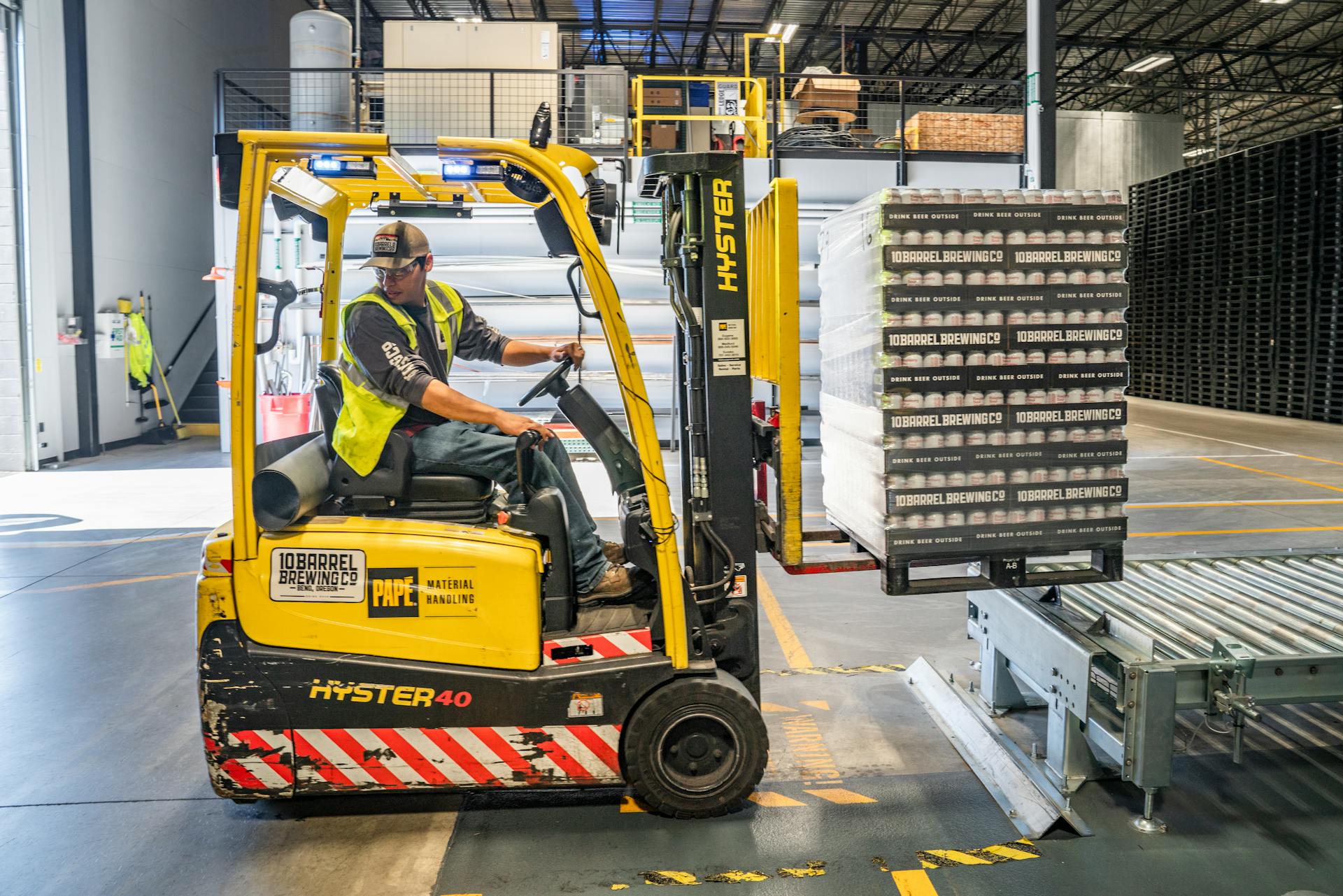
How to Choose the Ideal Pallet to Enhance Your Logistics?
by Natalie
When it comes to logistics, selecting the right pallet is more than just a small detail—it’s crucial for ensuring efficiency, cost-effectiveness, and safety in the supply chain. The choice of pallet can impact everything from storage to transportation and even the durability of the products you’re shipping. Below is a guide on how to select the perfect pallet for optimizing your logistics operations.
Understanding the Role of Pallets in Logistics
Pallets are a fundamental component in the movement of goods across various stages of the supply chain. They are used to support, stabilize, and stack products during transportation and storage. In logistics, pallets serve to:
Facilitate ease of handling by forklifts and other material handling equipment.
Ensure product stability during transit to prevent damage.
Reduce labor costs by making the loading and unloading process more efficient.
Maximize storage space, allowing for better organization.
By choosing the right pallet, you can improve the efficiency of your operations while minimizing costs and risks.
Types of Pallets: Wood, Plastic, and Metal
When choosing a pallet, the material is one of the most important considerations. Each type of pallet material offers unique advantages depending on the nature of the goods being transported.
Wooden Pallets: These are the most common and cost-effective option. They are durable and easy to repair, making them a great choice for many industries. However, wooden pallets can be prone to splinters, moisture damage, and pest infestations.
Plastic Pallets: These pallets are lightweight, resistant to moisture, and easy to clean. They are ideal for industries that require strict hygiene standards, such as pharmaceuticals and food. While more expensive than wooden pallets, their durability and reusability can lead to cost savings in the long run.
Metal Pallets: Metal pallets, often made of steel or aluminum, are the most durable and resistant to extreme conditions. They are best for heavy-duty applications or for transporting high-value or sensitive items. However, they are generally more expensive and heavier than other options.
Each type of pallet has its pros and cons, and the choice will depend on factors such as product type, environmental conditions, and budget.
Key Factors to Consider When Choosing a Pallet
Load Capacity
The load capacity of a pallet refers to the weight it can safely carry. It’s essential to match the pallet’s load capacity with the weight of your products. If the pallet is too weak, it could break or cause damage to your goods, while an overly strong pallet could lead to unnecessary costs.
Dimensions and Design
Pallet dimensions are another critical consideration. Standard pallet sizes vary by region, so it’s important to choose a pallet that fits your storage and transportation requirements. The most common sizes are:
48 x 40 inches (1219 x 1016 mm) in North America
1200 x 800 mm in Europe
Additionally, the design of the pallet should complement the goods being shipped. For example, certain pallets come with features like additional boards for support, which may be necessary for fragile or irregularly shaped items.
Durability and Lifespan
The durability of a pallet is closely related to its material. Wooden pallets, for instance, may degrade over time due to moisture or heavy use, while plastic and metal pallets can last much longer. If you are shipping goods over long distances or through harsh conditions, it’s important to invest in a pallet that can withstand these challenges without deteriorating.
Environmental Impact
Sustainability is becoming an increasingly important factor in logistics. When selecting a pallet, consider its environmental impact. Wooden pallets are biodegradable, but they can also be wasteful if not recycled properly. Plastic pallets are reusable and recyclable, though their production has a higher carbon footprint. Metal pallets, while durable, may not be the most eco-friendly option.
If sustainability is a priority for your business, consider opting for recyclable or reusable materials, or explore options that meet environmental certifications like Forest Stewardship Council (FSC) standards.
Specialized Pallets for Unique Needs
Some industries or types of goods require specialized pallets to ensure safe and efficient transportation. Here are a few examples:
Hygienic Pallets: Used primarily in the food and pharmaceutical industries, these pallets are designed to meet strict hygiene standards. They are often made from plastic, which is easy to clean and resistant to contamination.
Heavy-Duty Pallets: For industries that ship heavy or bulky items, heavy-duty pallets with reinforced structures are essential. These pallets are often made of wood or metal and can handle substantial weight without compromising stability.
Nestable and Stackable Pallets: These types of pallets are designed for efficient storage and transport. Nestable pallets fit inside each other when empty, reducing space usage, while stackable pallets allow for multiple layers to be stacked, maximizing storage capacity.
By selecting the right type of specialized pallet, you can further streamline your logistics operations and meet the unique needs of your goods.
Cost Considerations
While the initial cost of a pallet may be important, it’s also vital to consider the long-term costs associated with its use. For instance, while plastic and metal pallets tend to have higher upfront costs, their durability and reusability can result in savings over time. Additionally, consider factors like repairability and whether the pallet can be reused multiple times.
Choosing a pallet based solely on its initial cost might not always be the best decision. Evaluate the total cost of ownership, which includes purchasing, maintenance, and replacement costs.
Conclusion
Selecting the right pallet for your logistics operations is essential for ensuring that your goods are transported efficiently and safely. By considering factors such as material, load capacity, durability, and environmental impact, you can make an informed decision that optimizes your supply chain. Whether you choose a wooden, plastic, or metal pallet, it’s important to choose one that aligns with your business needs and budget.
Remember that a well-chosen pallet does more than just carry goods—it enhances the overall efficiency of your logistics and contributes to the success of your business.